 | |  | | Fall 2020 Insights eNewsletter |
| From the Director’s Desk Going Virtual But Keeping Real Connections | Stay Home, Stay Healthy doesn’t mean Stay Away -- entirely. We still need Connections – social interactions (even at a distance) with family, friends, and colleagues. All of us at the Evergreen Council on Problem Gambling take very seriously the need for caution and precaution as we develop new ways to stay connected to each other and all of you in response to the emergence and resurgence of COVID-19. Health and Safety must be top priorities. | Ensuring that quality continuing education and professional development opportunities in our field are still available – whether you’re a Mental Health and Addictions Counselor, a Recovery/Peer Coach, a Prevention Specialist, an Educator, a Gaming Industry member, a Policy Maker, or so many others – is a major aspect of ECPG’s mission. While that means some significant adjustments in workstyle, culture, and use of technology are necessary, I’m proud of our staff and our partners who are helping us offer some fantastic training and continuing education opportunities for all of you. Working remotely can mean working at a slower pace – but not for our ECPG staff and partners. They have been busy translating all our education opportunities to these new digital modes and ensuring we have the right technology to support strong communications and collaboration. If you’ve tried to order high-quality tech equipment, such as webcams and microphones, you already know that everything has been on backorder for months! You’ll find more details about our new Mid-Month Trainings, ENGAGE ECPG Online Learning Experiences, ECPG LIVE! streaming events, and the upcoming launch of our new Connections Podcast in this issue of Insights, our eNewsletter. Our first Mid-Month Training launches October 14-16 with three half-day programs that will offer continuing education hours and many of the breakout sessions that were planned for our Focus on the Future, Northwest Recovery Symposium, and Four Directions conferences this year. ENGAGE ECPG Online Learning launched this summer with a Gambling Counselor Exam Prep eCourse, and we are getting a wonderful response from counselors who will be taking the International Gambling Counselor Exam this year. Our ECPG LIVE! streaming events on Facebook and YouTube have featured some amazing guests on topics from The Pros and Cons of Telemental Health and Cashless Casinos to Gaming and Gambling During a Pandemic and Responsible Gaming Roundtable. Among the things we miss so much about gathering together for events are the informal social connections that take place during our face-to-face conferences and trainings – the quick chat before a breakout starts; a conversation over a cup of tea; catching up at a community dinner event. We are building into our Mid-Month Trainings opportunities to connect during a fun Activity Space; at our Networking Lounge; and over an “Out of the Lunch Box” Break. So join us to share connections in this virtual learning space – even when we can’t yet share in the same physical space. 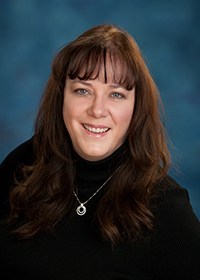
Maureen Greeley
ECPG Executive Director |
| | 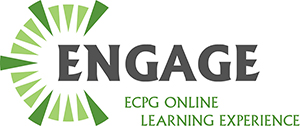 Mid-Month Trainings
(Live Webinars) October 14-15-16
Offers up to 9 CEs* Join us for our new, monthly trainings that will highlight some of the best presenters and topics traditionally offered at our Focus on the Future and Four Directions conference and our Northwest Recovery Symposium. It’s your opportunity to learn, share understanding, ask important questions, and celebrate the work you all do to make a difference in our communities, the work in our field regionally, nationally, and internationally, and each other. ENGAGE with more than 15 presenters on topics that include: - Stigma of Addiction and Recovery
- Mental Health, Addiction, and COVID-19
- The Future of Problem Gambling Prevention, Treatment, and Recovery
- A Movement Against Racism Should Be a Movement For Mental Health
- Recovery Coach’s Role in the ER Department
- Latinx Communities and Gambling
- Peer and Recovery Coach Services
- Suicide Prevention
October Mid-Month Training Offers: - Two Concurrent Tracks!
- Problem Gambling Treatment Topics
- Recovery Supports and Services
- Half-Day Sessions
- 9 a.m. – 1 p.m. PT/10 a.m. – 2 p.m. MT/11 a.m. – 3 p.m. CT/Noon – 4 p.m. ET
- Attend One – Two – or ALL Three Days
- Recorded sessions available for 90 days with Premium Package
- Networking Time every day to connect and chat with colleagues and friends
We’re certain there’s something to capture everyone’s interest as you engage with some of the top experts in the fields of Prevention, Treatment, and Recovery. Look over the full Agenda for October and find registration and scholarship information here. |
| | | *CE Requests As you know, one of the great benefits of attending our trainings, is the ability to get Continuing Education credits for multiple license renewal needs, all at once! ECPG always strives to apply to the most relevant and most needed CE accrediting bodies. To do that, we need your input! (Which agencies we get approved for can change based on types of topics offered.) We’ve created a quick two-question survey for you to vote for CE’s you need! We will always make sure we apply for CE approval from NCPG and NAADAC. But many of you may need some others such as: AAHCPAD, APA, MHACBO, NASW, NBCC, WMHCA, or others. So just click the link below to answer two questions about which CEs are most valuable to YOU! |
| | | ECPG/NCPG Joint Membership Not yet an NCPG Member? Take advantage of our ECPG/NCPG Joint Membership – join both and save! |
|  | As an ECPG member, you’ll receive member discounted rates on all of our quarterly trainings, our annual conferences, and Recovery Coach Trainings – all of which offer Continuing Education Units from many association and certification boards. |
| |  IGCCB Exam Prep eCourse It’s finally here! The brand new, self-paced, IGCCB Exam Prep eCourse is open for registration! This course is designed to supplement your study and core trainings with practice exam questions, listings of study resource materials, and test-taking tips. The self-paced program allows you to study on your own schedule – from your PC, Phone, or Tablet. Once you are registered, you can return to the eCourse as often as you’d like for as long as 120 days. This course was designed to meet the following goals: - To provide an overview of what counselors can expect from the certification and examination process.
- To provide at least 100 practice questions that model the style, topics, and types of questions that will appear on the actual exam.
- To provide study resources and sources of reliable information and best practices on the treatment of Problem Gambling and Gambling Disorder.
- To help clinicians develop their knowledge and skills while preparing to take the exam.
DETAILS: ESTIMATED TIME TO COMPLETE: 2 hours CE CREDITS: 2 Approved for CE hours by:
NAADAC, NCPG, AAHCPAD, and MHACBO FORMAT: Online Self-Paced Study PRICING: Non-member: $25
ECPG Member: $22 |
| | | Next IGCCB Testing Window | | Application Deadline | Testing Window | | November 4, 2020 | December 5 – December 19, 2020 | |
| |  Certification Committee Update - Certification updates |
| Brad Galvin, MS, LMHC, SUDP, NCGC-II,
Addiction and Trauma Therapy Specialist, Brief Therapy Works,
Chair, Washington State Gambling Counselor Certification Committee |
|
|
| The Washington State Gambling Counselor Certification (WSGCC) Committee has been working diligently to reduce barriers to becoming a Certified Gambling Counselor in Washington state. We have addressed temporary barriers due to COVID-19, as well as long-term barriers that require more permanent changes. Some steps we have taken include: decreasing the number of years required as a behavioral health supervisor before becoming a problem gambling supervisor; allowing for entirely virtual (online or by phone) clinical supervision for those seeking certification; and enabling training for certification and renewal to be online (through March 31, 2021). For those whose certification renewal is in 2020, all renewal deadlines have been extended to December 31, 2020. While we intend to continue accepting the IGCCB International Certification Exam for Gambling Counselors in our criteria for those who wish to take it, we are considering exam alternatives to assess clinical proficiency. We are continuing to examine ways in which to reduce barriers to becoming a Certified Gambling Counselor while maintaining high standards for our field. It is with great joy that we anticipate the addition of new, motivated, excellent clinicians to our field. Join us! A new version of the Certification Manual will be released as soon as additional pending changes are finalized. You can find a summary of current changes here, and the most recent Certification Manual, in its entirety, can be found here. |
| | Community Advisory Committee Latinx Advisory Committee and Spanish-language Resources  We have been working diligently with our amazing Latinx Advisory Committee. This committee is made up of volunteers who are experts in their field, leaders in their industry, and truly have a remarkable willingness to volunteer their time and commitment to the task of increasing problem gambling awareness, help services, and reducing barriers to Latinx communities. The pandemic may have halted a few projects but, despite the obstacles from COVID-19, together we managed to update a Spanish-language Problem Gambling brochure, awareness flyer, a Spanish-language page on the ECPG website, and translate multiple gambling screens into Spanish. But they didn’t just provide translation services, the committee advised us on culturally relevant colors, photos, messaging, values, and more. You can find all those resources NOW on the Spanish-language website here. Make a Difference – Join a Community Advisory Committee Interested in making a difference in your community? The experience, insights, and knowledge shared by Community Advisory Committees are vital to helping ECPG offer and enhance programs that meet the needs of diverse communities we serve throughout Washington State. Find a full listing of Community Advisory Committees on our website here. |
|
|
| | | Our live streaming events have been a blast. Thank you to everyone who has tuned in, participated, and to all our guest experts who have come on the show. There are now so many great questions that come in from participants during the episodes, that we do a follow-up Q&A and post it in our blog as ECPG EXTRA! |
|
|
| | | CONNECTIONS PODCAST: HEALTHY GAMBLING & GAMING |
| “Anything you can do to help others meet their need for connection also helps you. There is satisfaction, even joy, to be found in serving a cause greater than self.” --Connection Culture Group |
|
|
| Connections are important now, perhaps more than ever, as we face social restrictions unlike any most of us have known before. Human connection has proven key to mental and physical well-being. Connections, coupled with partnerships, can be strong forces for communication and understanding. In the Pacific Northwest, we are proud of the natural connections formed between the Evergreen and Oregon Councils on Problem Gambling. By working together, we can offer better, enhanced, and broader programs and services in prevention, awareness, treatment, and recovery services. Welcome a new Connection tool in our efforts – Connections Podcast. We hope this will be an easy way to connect and communicate that fits into your busy lives now and in the future. Hosts Tana Russell, Assistant Director at ECPG and Julie Hynes, Executive Director at OCPG, will open dialogue and invite experts in our field to share thoughts and insights; that connect us by: - Connecting gaming and gambling-related efforts to real-life prevention, treatment, and recovery experiences
- Helping expand knowledge and thinking on key issues.
- Encouraging increased understanding and empathy around cultural perspectives.
- Be an informative and entertaining go-to space.
So, whether you’re new to podcasts or a proficient podcast enthusiast… No matter where you reside or how you connect… We hope you’ll join us for the launch of Connections Podcast later this month. “Connection is why we’re here; it is what gives purpose and meaning to our lives.”
--Brené Brown |
| | Road to Recovery What does Recovery look like? How often do we talk about the full continuum of care with regard to gambling disorder? Thanks to important partnerships among prevention, treatment, recovery, and responsible gambling and gaming advocates and organizations, awareness of all these issues is growing. Last winter, Recovery Cafe offered an opportunity for our Evergreen Council on Problem Gambling to partner with them on the development of perhaps the most extensive Problem Gambling Awareness Campaign ever offered in Washington State. This campaign was made possible through the generous financial investment of The Snoqualmie Indian Tribe. The Awareness Campaign, which launched during Problem Gambling Awareness Month last March, continues into September with broadcast and digital advertising and website and social media supports. Together with media partners KING 5/TEGNA, the campaign also offered seven segments on New Day Northwest morning talk show hosted by Emmy Award-winning journalist Margaret Larson. These segments featured experts in the field—many of whom you my recognize. We’d like to thank them for their participation. To view all seven New Day Northwest Segments, visit roadtorecoverys.org |
| Hilarie Cash, PhD, reSTART Rep. Lauren Davis, Washington Recovery Alliance Kara Fox-LaRose, Pres./Gen. Mngr. ilani Casino Brad Galvin, LMHC, SUDP, ICGC-II, Brief Therapy Works Nate Halverson, Reporter & Producer, Reveal- from the Center for Investigative Reporting Eva James, Recovery Coach Rep. Shelley Kloba, Washington State Gambling Commission |
|
|
Victor Loo, Asian Counseling and Referral Service Ty Lostutter, PhD, University of Washington Tana Russell, SUDP, WSCGC-II, ECPG Sarah Sense-Wilson, LMHC, WSCGC-II Ruby Takushi, PhD, Recovery Café Stephanie Tompkins, SUDP, Alternatives Professional Counseling Keith Whyte, Executive Director, National Council on Problem Gambling |
|
|
| The Awareness Campaign reaches out to individuals, families, and communities through all these diverse communication channels with information to help them understand the signs and symptoms of problem gambling, its impacts on communities, the blurring lines between gambling and gaming disorders, co-occurring disorders and holistic treatment approaches, responsible gambling and policy making, concerns about social casinos and casino-style online gambling, and recovery supports and services. |
| | 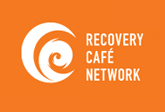 Partner Profile – Recovery Café Network Recovery Café Network (RCN) is comprised of Member organizations committed to serving people suffering from homelessness, addiction and other mental health challenges using the Recovery Café model. Every Member of the RCN is dedicated to these Core Commitments: – Create a community space that is drug and alcohol free, embracing, and healing – Nurture structures of loving accountability called Recovery Circles – Empower every Member to be a contributor – Raise up Member leaders – Ensure responsible stewardship The collective impact of many organizations working together, learning together and sharing resources creates a synergy and ripple effect of lives transformed. Through this joint approach, we all have a broader and deeper reach than any group working on its own. Learn more about Recovery Café Network at recoverycafenetwork.org. |
| | Washington State Problem Gambling Task Force (PGTF) Update Brad Galvin, MS, LMHC, SUDP, NCGC-II,
Addiction and Trauma Therapy Specialist, Brief Therapy Works,
Co-Chair, Washington State Problem Gambling Task Force What is the Problem Gambling Task Force Doing? We are pleased with the progress our Problem Gambling Task Force has made since its inception in January. We have been reviewing existing prevention, treatment, and recovery support services, how they are interrelated, and whether their funding levels are sufficient. Our examination has also involved looking at broader systems including the interface between those with problem gambling, casino frontline and managerial staff, and recovery resources with a desire to provide the training, knowledge, and support to individual and community stakeholders. Our medium-term goals include initiation and completion of a statewide problem gambling prevalence study, drawing upon the results of the Washington State Gambling Commission’s 2019 Problem Gambling Study, to buttress our recommendations with additional data. We expect this to begin in early 2021, dependent to some degree on the impact of COVID-19 at that time. Overall, we have had a relatively smooth transition from in-person to virtual meetings despite our initial shock at their necessity. Our positive experience communicating over video has underscored the importance of broadening the availability of problem gambling-related virtual treatment and prevention options. We believe that this will remain an important aspect of problem gambling programs in the future. Access to Care, Treatment, and Recovery Work Group It has been a busy quarter for our Access to Care, Treatment, and Recovery Work Group! We have been working hard to refine our goals into actionable strategies. Some of our top priorities include: ensuring that gambling treatment services are available for everyone in Washington, regardless of where they fall on the continuum of care; identifying and augmenting potential funding sources to support these services; and increasing the number of certified gambling counselors. We recognize that a significant gap exists between the need for treatment in the state and the presence of services to meet that need. It is our hope that the work we are doing together will provide impetus to the legislature to help shrink this gap. Research and Data Work Group The Research and Data Work Group has been brainstorming the best solution about how and when to implement a Problem Gambling and Gaming prevalence study. Prevalence studies should be conducted in times when subjects are engaging in their normal gambling and gaming behaviors, but with COVID-19 shutdowns and everyone staying home to stay healthy, current conditions are anything but normal. So the launch of a new prevalence study has been postponed and discussions continue on possibilities of how to collect data on a long-term and regular basis, along with cost/benefit analyses. Prevention and Outreach Work Group The Prevention and Outreach Work Group has recognized the increasingly blurred lines of gambling and gaming and how those merging worlds may need to be considered in prevention and outreach efforts. They are also discussing the implementation of the state-administered Voluntary Self-Exclusion Program that passed Spring 2019, as well as other preventive measures under consideration. Advocacy and Policy Work Group More to come on the Advocacy and Policy Work Group as they plan to have their first meeting in September. |
| | Upcoming Conference and Workshop Presentations |
| Even in these days of virtual trainings, we are still making the “tour” of local conferences and programs to give presentations and spread the message of help and hope for recovery. |
| COD & Treatment Conference, October 5-6, 2020 |
| Hilarie Cash, Chief Clinical Director at reSTART Life is partnering with Tana Russell to do a presentation on the Blurring Lines of Gambling and Gaming. Tana Russell is also doing a presentation on the Co-Occurrence of Gambling Disorder with MH/SUD. You can learn more about the COD & Treatment Conference here. |
|
|
| Washington State Public Health Association Conference, October 12-16, 2020 |
| Tana Russell will be presenting at the WSPHA Conference on Problem Gambling and Public Health. You can learn more about the WSPHA Conference here. |
|
|
| Prevention Summit, November 3-4, 2020 |
| ECPG and the Oregon Council on Problem Gambling are partnering to present to both youth and adults at the fall Prevention Summit, on prevention of youth problem gambling and excessive video gaming. OCPG Executive Director Julie Hynes will join ECPG’s Maureen Greeley and Tana Russell. You can learn more about the Prevention Summit here. |
|
|
| | Recovery, Suicide Prevention, and Responsible Gaming In a year of heightened awareness of mental health issues and mental health as a public health issue, it seems appropriate that National Recovery Month, National Suicide Prevention Month, and Responsible Gaming Education Week (September 13-19) should all fall in September. Substance Abuse, Problem Gambling – addictions and mental health issues – all have significantly high rates of suicide ideation and staggering suicide attempt rates. They are also surrounded by misperceptions and stigma that result in hurdles and barriers to seeking help. By increasing awareness and, we hope, reducing the stigma surrounding addiction and recovery, we can play a crucial role in reducing the stigma surrounding suicide. By celebrating the Recovery Community and Survivors – individuals and families from all walks of life, all colors, creeds, and cultures, all ages and gender identification – we hope to help people see that addiction and suicide impact everyone. Of particular importance now, with increases in suicide rates and calls to the National Suicide Prevention Lifeline (1-800-273-8255) is the recent decision by the FCC to designate 988 as the nation’s newest 3-digit crisis number for direct access to suicide prevention and mental health crisis referrals. By July 16, 2022, all calls dialed to the 988 number will be directed to the National Suicide Prevention Lifeline, which currently has a network of more than 160 crisis centers providing 24/7 service. Suicide claims the lives of about 1 person every 11 minutes in the United States. According to the CDC, suicide is now the second leading cause of death for Americans age 10 to 34. FCC Chair Ajit Pai shared: “My hope is that by establishing a government-backed 988 suicide and mental health 3-digit dialing code, on par with the 911 dialing code all Americans know for emergencies, we will send a powerful signal that there is nothing shameful about seeking help in times of crisis. That it’s a sign of strength, not one of weakness. We will let people know that they are not alone.” |
| If you or someone you know needs help now, please contact: - National Suicide Prevention Lifeline at 1-800-273-TALK (8255)
- Text the Crisis Text Line (text HELLO to 741741)
- The deaf and hard of hearing can contact the Lifeline via TTY at 1-800-799-4889
- Veterans can dial 1-800-273-8255 and Press 1 to talk to someone or send a text message to 838255 to connect with a VA responder
- The Veterans Crisis Line connects Service members and Veterans in crisis, as well as their family members and friends, with qualified, caring Department of Veteran’s Affairs (VA) responders through a confidential toll-free hotline, online chat, or text messaging service
- Veterans can also start a confidential online chat session at veteranscrisisline.net/get-help/chat
- LGBTQ can also reach the Trevor Project at 1-866-488-7386 or text START to 678678
|
| 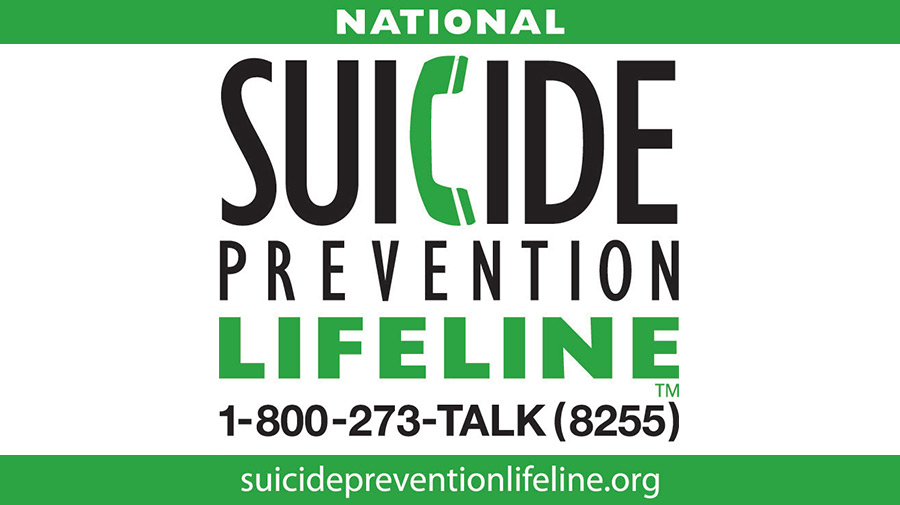 | | 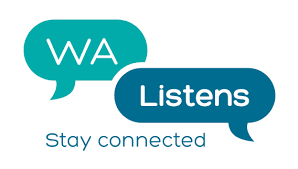 Washington Listens – COVID Crisis Support Line Washington Listens – COVID Crisis Support Line In response to the COVID-19 pandemic, Washington has launched a support program called Washington Listens. Washington Listens is available to anyone in Washington to speak to a support specialist. Callers receive support and connection to community resources in their area. The program is anonymous Call 1-833-681-0211. Washington Listens is available Monday – Friday from 9 a.m. to 9 p.m. and weekends from 9 a.m. to 6 p.m. TTY and language access services are available. For more information here is a Washington Listens Fact Sheet. Watch the CityStream: Washington Listens clip here. |
| | HOW RIGHT NOW INITIATIVE SHARES NEW TOOLS
TO HELP WITH COPING AND RESILIENCE DURING THE COVID-19 PANDEMIC  The Evergreen Council on Problem Gambling (ECPG) is pleased to announce its support of How Right Now, an initiative that aims to address people’s feelings of grief, loss, and worry during the COVID-19 pandemic. How Right Now offers information and support to help people cope and be resilient during this time. This initiative is made possible with funding through the CDC Foundation. ECPG and many other national, regional, and local organizations are working together to help improve individual and community resilience. Visit www.howrightnow.org to explore the resources. Additional resources are being developed and will be made available. |
| | Responsible Gaming Education Week – September 13-19 Show a commitment to Responsible Gaming, have a game plan, set limits, play responsibly. Increase awareness by participating in Responsible Gaming Education Week, September 13-19. Download a Responsible Gaming Education Week Toolkit from the American Gaming Association Responsible Gaming Education Week webpage. |
| |
|
| Contact Us Evergreen Council on Problem Gambling
1821 4th Ave. E
Olympia, Washington 98506
360-352-6133
info@evergreencpg.org |
|
|
| |
|
|